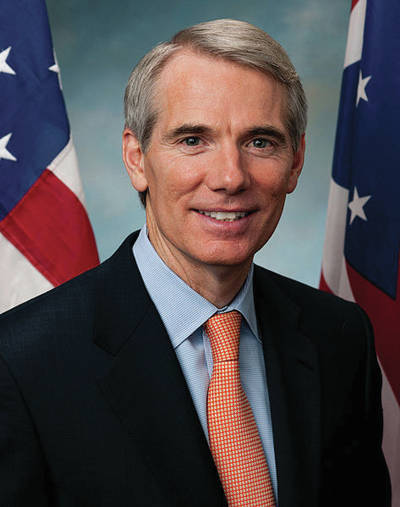

WASHINGTON (AP) — Republicans and Democrats joined forces to speed legislation combating the misuse of opioids and other addictive drugs through Senate passage Monday, a rare campaign-season show of unity against a growing and deadly health care crisis.
The measure passed by a 99-1 vote Monday evening. Sen. Mike Lee, R-Utah, voted against it.
It takes wide aim at the problem, including increasing scrutiny of arriving international mail that may include illegal drugs. It makes it easier for the National Institutes of Health to approve research on non-addictive painkillers and for pharmaceutical companies to conduct that research.
The Food and Drug Administration would be allowed to require drug makers to package smaller quantities of drugs like opioids. And there would be new federal grants for treatment centers, training emergency workers and research on prevention methods.
“This comprehensive opioids package is designed to help turn the tide of this epidemic, and I’m pleased the Senate passed it in an overwhelmingly bipartisan fashion,” said Sen. Portman (R-Ohio). “We need to help more people get longer-term treatment to overcome the disease of addiction, and we need to do more to keep deadly fentanyl out of our communities. This legislation will do both. Across Ohio, what I hear as I meet with those on the frontlines of this crisis is that we need to combat the influx of fentanyl if we truly want to overcome this epidemic. That’s why it is so important that the STOP Act is included in this legislation.
“Passing the STOP Act is a victory in our efforts to combat the newest and deadliest aspect of this opioid crisis: the overwhelming supply of cheap, deadly synthetic drugs like fentanyl,” Portman said. “By closing the loophole in our international mail system that drug traffickers have exploited to ship fentanyl into the U.S., we can help law enforcement keep this poison out of our communities.”
Sen. Sherrod Brown (D-Ohio) said, “I’m proud to support Senator Portman’s Synthetics Trafficking & Overdose Prevention (STOP) Act, which will be part of the Senate package. The STOP Act works together with my INTERDICT Act, which President Trump signed into law last year, to help stop dangerous synthetic drugs like fentanyl at the border.”
Brown also said, “We were able to include our bipartisan bill to support organizations that treat babies born with neonatal abstinence syndrome (NAS), like Brigid’s Path in Dayton. Brigid’s Path is one of just two residential treatment centers in the country for these infants.
“NAS is caused by the use of opioids or other addictive substances during pregnancy, and has become a growing challenge for families and health care providers in Ohio. Recent studies show that cases of NAS have tripled over the past decade.
“Right now, these babies are usually treated in the neonatal intensive care unit, known as the NICU, where treatment costs are more than five times the cost of treating other newborns. But given the bright lights and loud noises, the NICU is not always the best place for newborns struggling with withdrawal.
“Our bill, the Caring Recovery for Infants and Babies (CRIB) Act, will allow organizations like Brigid’s Path to bill Medicaid for the services they offer, expanding options for care for the thousands of babies who need specialized treatment.”
Lawmakers’ focus on combating opioids comes amid alarming increases in drug overdose deaths, with the government estimating more than 72,000 of them last year. That figure has grown annually and is double the 36,000 who died in 2008.
Besides the sheer numbers, Congress has been drawn to the problem because of its broad impact on Republican, Democratic and swing states alike.
California, Florida, Ohio and Pennsylvania each had more than 4,000 people die from drug overdoses in 2016, while seven other states each lost more than 2,000 people to drugs, according to the most recent figures available. The states with the highest death rates per resident include West Virginia, Pennsylvania, Ohio and New Hampshire, along with the District of Columbia.
Money for much of the federal spending the legislation envisions would have to be provided in separate spending bills.
The House approved its own drug legislation this summer. Congressional leaders hope the two chambers will produce compromise legislation and send it to President Donald Trump for his signature by year’s end.



